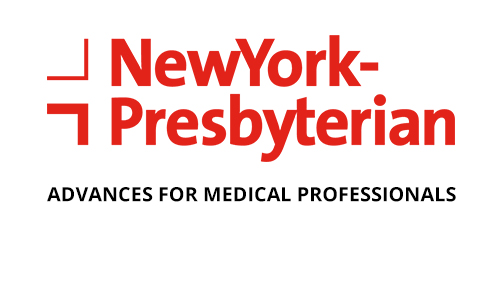Renowned GI Physician-Scientists Lead Cancer Care and Research Programs at NewYork-Presbyterian

Anil K. Rustgi, MD
Anil K. Rustgi, MD, a preeminent cancer physician-scientist, has been appointed Director of the Herbert Irving Comprehensive Cancer Center, and Chief of the Cancer Service, NewYork-Presbyterian/
“I have had longstanding collaborations with colleagues at Columbia, including joint grants and publications, and so over time, I have been making the trip here at least once or twice a year,” says Dr. Rustgi, who came on board in April 2019.
“Their commitment to excellence in research, education, and clinical care is part of the very fabric of the Cancer Center — and that has been longstanding. I have been impressed with the depth and breadth of basic science research, the growth of translational research, clinical trials, clinical care, and service in the community, both on campus as well as with our partner hospitals.”
Dr. Rustgi joins NewYork-Presbyterian from the University of Pennsylvania’s Perelman School of Medicine, where for the past two decades he served as the T. Grier Miller Professor of Medicine and Genetics, Chief of the Division of Gastroenterology, and Director of the NIH/NIDDK P30 Center for Molecular Studies in Digestive and Liver Diseases. He has been President of the American Gastroenterological Association, Editor-in-Chief of Gastroenterology, President of the International Society of Gastroenterological Carcinogenesis, and beginning in 2020, Dr. Rustgi will serve as President of the American Pancreatic Association.
After graduating summa cum laude from Yale University with a bachelor’s degree in molecular biophysics and biochemistry, Dr. Rustgi earned his medical degree at Duke University School of Medicine. Following an internal medicine residency at Beth Israel Deaconess Medical Center and a gastroenterology fellowship at Massachusetts General Hospital, he joined the University of Pennsylvania in 1998.
A Prodigious Scientist in GI Cancers
In 2017, Dr. Rustgi was elected by his peers as a Fellow of the American Association for the Advancement of Science, the world’s largest general scientific body, recognizing his numerous contributions to cancer biology. That same year, the American Gastroenterological Society presented its highest honor, the Julius Friedenwald Medal, to Dr. Rustgi for his extraordinary contributions to the field of gastroenterology and the organization over several decades. He was also elected to the American Society of Clinical Investigation and Association of American Physicians and holds an American Cancer Society Research Professorship, recognizing his “history of pioneering, influential work that’s continuing to change the direction of cancer research and…mentoring people who have become successful in cancer research.”
A major influence in the field of gastrointestinal cancer, Dr. Rustgi focuses his research on molecular genetics and factors in the tumor microenvironment that lead to the development, progression, and metastasis of GI cancers, including cancers of the esophagus, pancreas, and colon. Dr. Rustgi and his research team have provided innovative scientific contributions to the development of three-dimensional (3D) mouse and human origin cell culture systems and genetically engineered mouse models to investigate molecular mechanisms with the goal of improving molecular diagnostics and experimental therapeutics in patients as well as precision or personalized oncology. They are also credited with the identification of p120 catenin, a protein located in the cytoplasm of cells, as a tumor suppressor gene, and the discovery that human cyclin D1, a major cell cycle regulatory protein, is overexpressed in the majority of esophageal tumors, leading to new therapeutic avenues in these cancers. The NIH and NCI fund his research through a Program Project in esophageal cancer (the only one in the U.S.), two R01 grants, and a U54 grant. He is also funded through the American Cancer Society.
Dr. Rustgi has published more than 300 studies and is the editor of several textbooks on GI cancers. His work has appeared in peer-reviewed journals, including Cancer Cell, Cell Stem Cell, Genes and Development, Gastroenterology, Journal of Clinical Investigation, Nature, and Nature Genetics, amongst others.
Priorities for the Herbert Irving Comprehensive Cancer Center
Dr. Rustgi believes that critical research areas in cancer today include basic mechanisms of tumor initiation, tumor microenvironment and tumor metastasis; translational medicine for early detection, biomarkers of cancer progression and recurrence; immuno-oncology; overcoming therapeutic resistance, as well as employing new strategies in combinatorial therapeutics; and the implementation of cancer care and prevention initiatives in local and regional communities with extension of discoveries on the global stage. With this in mind, Dr. Rustgi, has outlined multiple interrelated priorities for the Herbert Irving Comprehensive Cancer Center:
- enhancing basic research and its integration with translational medicine and core facilities
- expanding investigator-initiated clinical trials
- emphasizing efforts in cancer genomics and precision oncology
- developing population science programs in the catchment area, as well as in global health
- training the next generation of leaders in cancer research and cancer care
- catalyzing programs in diversity and inclusion
Dr. Rustgi will maintain his clinical practice and continue his own research endeavors, with a goal to bridge the preclinical arena to clinical domains. “Research and clinical care are part of my identity as a physician-scientist,” he says. “I enjoy both pursuits, leading to exciting interactions with trainees, colleagues, and patients.”
Related Publications





